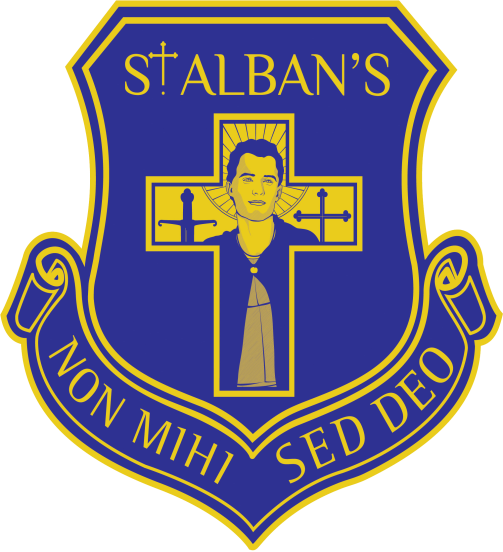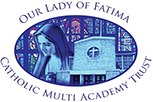Music Overview
This is a summary of how our school delivers music education to all our pupils across three areas – curriculum music, co-curricular provision and musical experiences – and what changes we are planning in future years. This information is to help pupils and parents or carers understand what our school offers and who we work with to support our pupils’ music education.
Part A: Curriculum music
This is about what we teach in lesson time, how much time is spent teaching music and any music qualifications or awards that pupils can achieve.
|
Our aim is to implement a Music curriculum that promotes a love of music and teaches children to have an appreciation of music from a range of genres, cultures, styles and traditions. Through the teaching of music, we aim to inspire children to create, compose and perform using instruments and voice. We use ‘Charanga’ and through this teaching resource children are taught musical elements following the learning sequence of: Listen and Appraise, Musical Activities (including pulse and rhythm), Singing and Voice, Playing instruments, Improvisation / Composition and Perform & Share. There is an expectation for a 30-40 minute Charanga lesson to be taught weekly in all classes following the structure of 6 lessons per half term. The scheme of work includes the progression of skills whilst also developing children’s performance skills. Charanga is an adaptable resource which is able to cater the musical needs of our SEND pupils. There are resources available as part of the ‘Anyone can play’ scheme to support children in the areas of: learning musical elements, playing instruments, improvisation and ways to record their own compositions. Resources such as ear defenders and adaptations of how and where the music lessons are delivered are adapted for some SEND children where necessary. For example, some children who are on the ASD spectrum can become overwhelmed with all of the noise from the lesson and sit just outside the classroom in the corridor to join in with the music lesson, so they can hear and partake but it takes into account their sensory needs. For those children who cannot access the Charanga curriculum they are given weekly (or sometimes daily, according to their ECHP’s/one plans) ‘Musical Communication’ sessions. These sessions involve the singing of nursery rhymes and simple songs using visual stimuli and a repetitive approach to engage children in music as well as promoting language, connection and communication. Charanga plans for progression through each unit and there are oppourtunities for children of greater depth to be extended through the areas of composition and instrumental skills. If a child has an instrument which they are learning as an extra-curricular activity they are able to play that instrument along with the whole class song/music piece as Charanga provides the sheet music and notation for a range of instruments. Following along with the musical notation rather than the simpler version is another way in which children working at a greater depth are extended and challenged. Charanga is ran as a whole class ensemble teaching approach in all year groups and provides oppourtunities for small group work as children are exposed to the composing elements of the unit as well as individual work through the improvisation aspect. Through the progression of our Music Curriculum children will have experience of playing a range of instruments throughout their primary schooling. In EYFS we begin with un-tuned percussion instruments building up to chime bars. Then in years 1 and 2 they progress from chime bars to glockenspiels. In year 3 the children have the oppourtunity to be taught by a music specialist provided by Essex Music Hub. They learn how to play recorders which they continue to use through Charanga units into year 4. When children reach year 5 they begin using string instruments via the ukulele and then guitar. In year 5 the children are taught by a guitar music teacher through whole class guitar lessons. Concluding in year 6 where the students consolidate all of their instrumental skills learnt through their primary years and perform pieces using all of the instruments they have learnt.
Please see part C for how we enhance our Music Curriculum further through the additional experiences we offer. |
Part B: Co-curricular music
This is about opportunities for pupils to sing and play music, outside of lesson time, including choirs, ensembles and bands, and how pupils can make progress in music beyond the core curriculum.
|
In our schools there are opportunities for children to have piano and guitar tuition with peripatetic music teachers which are taught on a weekly basis. We have noticed due to our locality and high levels of pupil premium that there isn’t a large uptake of students who partake and access these private lessons. This is why in our whole class music lessons we provide oppourtunities for children to be taught how to play the instruments outlined in the section above. All of our schools have choirs that provide extra oppourtunities for singing and performing throughout each year. The choir perform in school events, local events or visits to hospitals and residential care homes. There are also oppourtunities for children to perform at larger events such as ‘Young Voices’. |
Part C: Musical experiences
This is about all the other musical events and opportunities that we organise, such as singing in assembly, concerts and shows, and trips to professional concerts.
|
Celebrating music and children’s oppourtunities to experience music and perform is an important aspect of our musical curriculum. We have enhanced the Charanga scheme based curriculum by providing additional oppourtunities to expose our students to different varieties of music. Each half term we celebrate a classical composer. Children are introduced to the classical composer at the beginning of each term, they learn some facts about them in singing assembly and also listen to pieces of music by that composer during assemblies. A two year rolling program has been created where 12 classical composers are the focus. We also expose the children to different music genres. Each week in class a new music genre is introduced and the children have a chance to listen and appraise a piece of music from that genre. The aim is to expose and broaden children’s musical experiences. During music assemblies this genre is also celebrated as music pieces are played and depending on the suitability of the genre sometimes aspects of those music pieces are taught and sung as a whole school. Alongside Charanga and the above classical composers and music genres we have begun using the Royal Opera House scheme of work to expose the students to another form of music and performance through opera. Years 2 and 5 use the Royal Opera House scheme of work, this ensures children experience opera at both KS1 and KS2. We weave performance experiences into the curriculum for each year group: EYFS and KS1 perform the Nativity in the Autumn term. Years 3 and 4 perform the Easter story in Spring term. Then year 5 and year 6 work towards and end of year Summer performance/show. Each school comes together for a weekly music/singing assembly where as well as the classical composers and music genres are celebrated; we also provide performance oppourtunities to join in collective worship through whole school singing of hymns. We rehearse for up and coming performances together and each class share their termly Charanga song/music piece. Sharing their Charanga music piece ensures that there is an incentive to learning the piece of music during the term and it teaches the children the value of sharing and enjoying music with others. The regularity of the termly performances also helps children to develop their confidence of performing. |
In the future
This is about what the school is planning for subsequent years.
|
This year following our Music subject report we are going to continue to embed the teaching of musical elements and vocabulary used to increase our children’s understanding and musical knowledge. Another target we are focussing on is to enhance children’s musical knowledge and understanding of how music today is impacted by classical composers (as mentioned above). Then continue to develop children’s experiences and skills of playing instruments and the progression and growth of these skills throughout each year group.
In future years going forward we are looking into whether to move across to the Charanga scheme of music which is informed by the Model Music Curriculum brought out in March 2021. Though this non statutory guidance for teaching music is only from KS1 and wouldn’t include our EYFS. |

